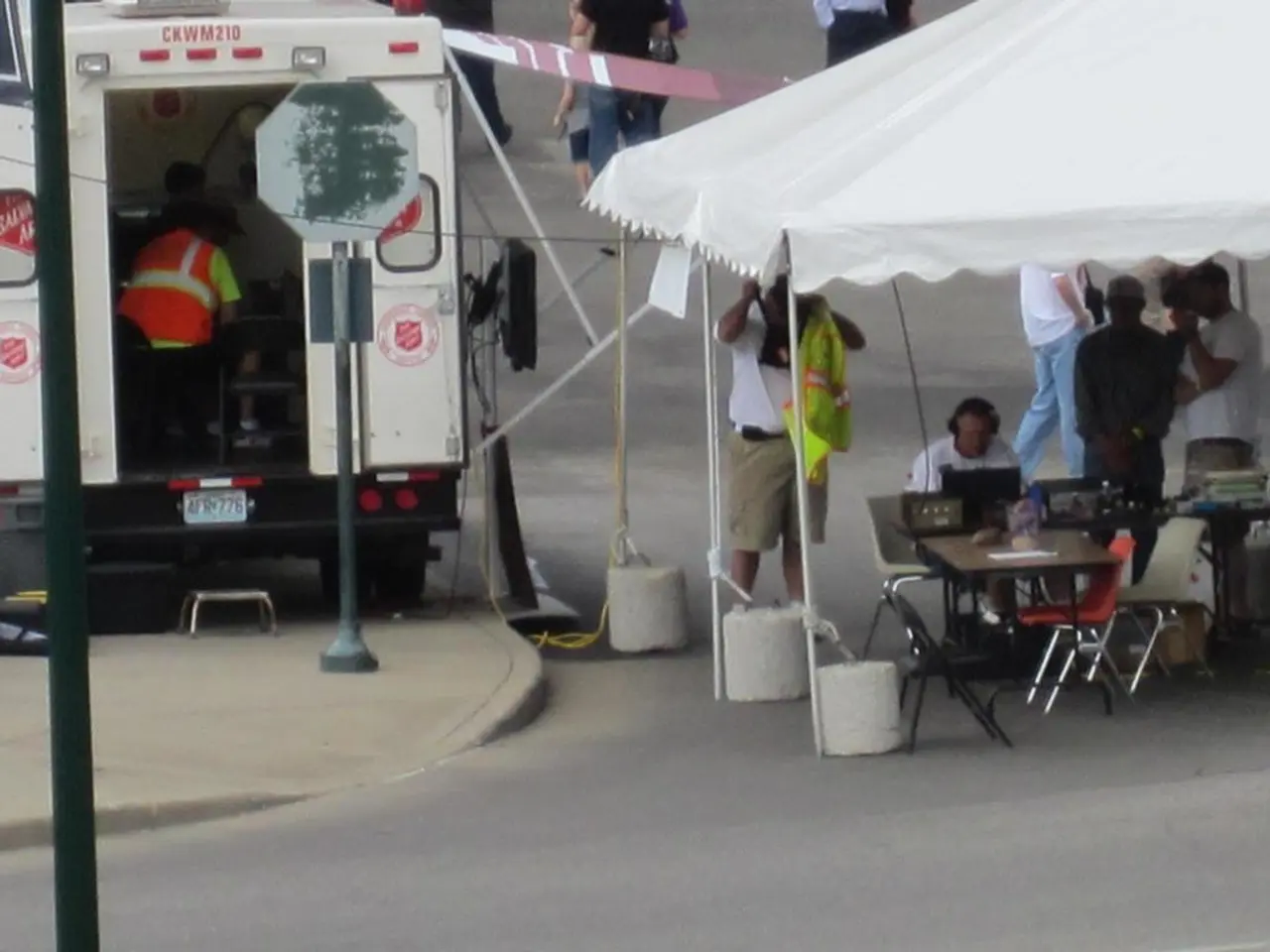Thousands of wounded individuals from Gaza seeking assistance troubling United Nations
In the enclave of Gaza, the ongoing conflict between Israel and Hamas has resulted in a humanitarian crisis of unprecedented proportions. The United Nations (UN) has issued repeated warnings about the dire situation, stating that if military operations persist or escalate, more deaths and destruction will occur, prolonging the suffering of the still-detained refugees.
The UN has cautioned about a widespread famine situation in Gaza, largely due to Israel's blockade of humanitarian aid for months. This blockade has led to severe consequences, with over two million people in Gaza affected by hunger, famine, and a lack of medical care. The humanitarian crisis is characterised by starvation, malnutrition, disease, and increased deaths related to hunger.
Since October 2023, the conflict has claimed the lives of over 60,000 Palestinians and injured more than 145,000. The Israeli military operation, which began after Hamas attacks on October 7, 2023, has resulted in around 1,200 deaths and nearly 250 hostages. Since the end of May, at least 1,760 Palestinians have been killed, most by Israeli army fire, while seeking humanitarian aid.
Numerous incidents have been reported of Palestinians being killed or injured while attempting to access food, water, and medical aid. For instance, on August 24, 2025, Israeli forces shot dead four Palestinians seeking aid in a military zone south of Gaza City. Conflicting movement access, airstrikes, and ground operations heighten these risks.
The Red Cross field hospital in Rafah treated over 4,500 injured patients between May 27 and August 8. However, the situation remains dire, with hundreds of thousands of people forced to flee their homes and most of the infrastructure destroyed. The majority of the injured patients reported being injured while trying to reach food distribution sites. Tragically, people have also reported injuries from being crushed by crowds, beaten, and robbed immediately after receiving aid.
The UN has called for authorisation to deliver large-scale aid through "community mechanisms" along with its partners. Delays and obstacles in aid delivery are affecting the UN and other humanitarian partners' ability to get goods from ports to the population. The UN has also stated that it will not participate in any forced population displacement.
Currently, only five of the 12 missions that required coordination with Israel had no obstacles on Thursday. About 50 refugees are still detained, of whom 20 are believed to be alive. The UN and humanitarian organisations are urging for ceasefires to enable safe aid delivery and to prevent further deaths of aid seekers in Gaza. They emphasise the need for these ceasefires to be in accordance with international humanitarian law.
The UN emphasizes the need for adherence to international humanitarian law, calling for immediate ceasefires to facilitate safe aid delivery and prevent the escalating deaths of civilians seeking help in Gaza. The lack of access to food, water, and medical care, exacerbated by Israel's blockade and ongoing conflicts, can lead to widespread famine, starvation, malnutrition, disease, and increased deaths within the environment of Gaza.







